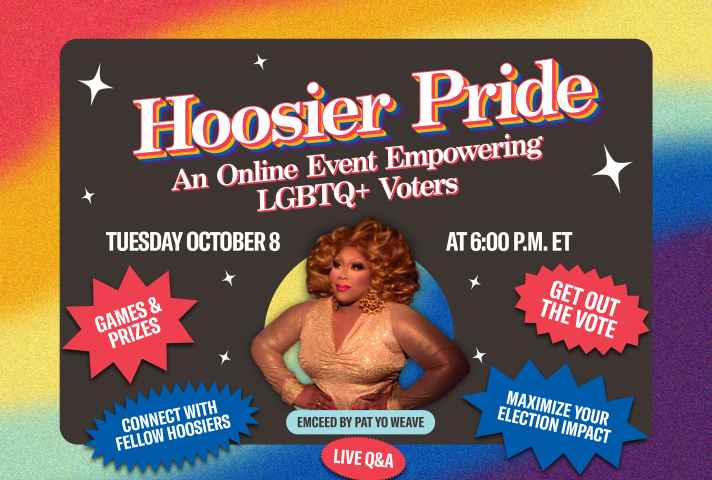Join us for an exciting and dynamic virtual event dedicated to voter engagement across our state! While there is a lot of focus on the top of the ticket, Hoosiers also have crucial decisions to make at the state and local level. We need to ensure LGBTQ+ voices are heard at the polls this November – up and down the ballot – and we are kicking off this important election with a PARTY!
What to Expect:
-
Energizing Kick-Off: Get pumped with a powerful opening from our LGBTQ+ leaders and allies. Hear inspiring stories and gain insights into why your vote matters this election and beyond.
- Fun Games: Test your knowledge on LGBTQ+ history and current issues with our live polls and quizzes. Winners will receive awesome prizes and gear to sport while casting their ballot!
- Engaging Discussion: Connect with fellow Hoosiers in themed breakout rooms. Discuss local issues, share experiences, and strategize on how to maximize your impact in the upcoming elections.
- Live Q&A Sessions: Have burning questions about voting, activism, or LGBTQ+ rights? Get them answered by our panel of experts and activists.
Why Attend?
Join us for an inspiring event where you'll learn how to effectively engage in the voting process and ensure your opinions are heard. Connect with like-minded individuals as you build a supportive community of allies and advocates dedicated to making a difference. Together, we’ll celebrate the rich tapestry of LGBTQ+ culture and achievements, embracing the diversity that makes our community so vibrant and unique.
